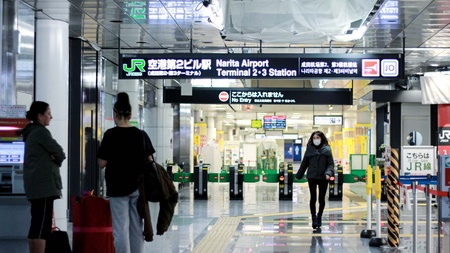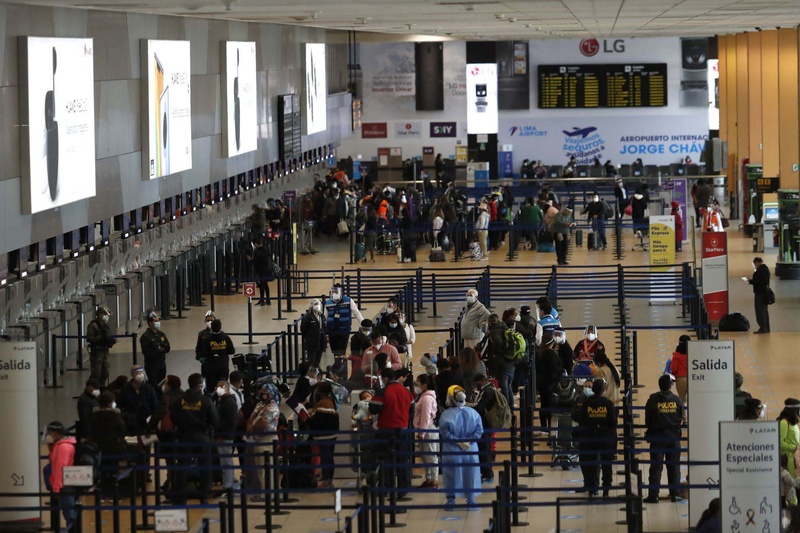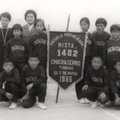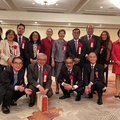Over the years, it seems to me that a positive narrative about the dekasegi phenomenon has prevailed. At least from Peru. The media predominates in stories of former dekasegi whose experience in Japan (savings, reinforcement of values, character formation, etc.) contributed to cementing their new life in Peru after their return.
Many bought houses, started businesses or became professionals. With greater or lesser success in their post-dekasegi lives, the majority—I believe—have an approving perception of their time in Japan.
It wasn't like that at the beginning. I remember that in the early years there was a lot of discussion about the negative impact of the dekasegi phenomenon. Emphasis was placed on the breakdown of families or the bloodletting of young people (even in the Nikkei community there was talk of a “lost generation”).
They don't talk about that anymore. I guess it's because we've achieved some stability. It is not like in the 1990s, when there was constant traffic between Peru and Japan, people coming and going, families separating and reuniting, people leaving again, families separating again, life projects changing. of country, uncertainty about the final destination, etc.
Today there is no mobility of that magnitude. There is also no uncertainty (or not as much as before). People are settled, whether in Peru or Japan. What do I do? Should I stay? Should I leave? These are questions that have lost relevance.
However, just because certain topics are not talked about does not mean that they do not exist. A while ago, a friend sadly told me that his mother, who had returned to Lima after living more than 25 years in Japan, could not get used to Peru, suffered from the imbalance and wanted to go back to Nihon.
For him, who had grown up missing his mother and imagined a happy old age for her in the company of his son and grandchildren after a life of hard work in Japan, it was very painful.
The dekasegi narrative, marked in recent years by the stories of people who generally achieved the objectives for which they migrated, also has a dark side.
Now, there is a gray area, perhaps in between, that I had little noticed until I saw a movie called Made in Argentina .
"WHAT DO YOU DO SO FAR?"
The film is set in the second half of the 1980s and its protagonists are an Argentine family who lives in the United States and returns to their country for a brief period after ten years of exile.
The family—parents and two daughters—migrated with nothing. Today, however, they have material well-being and their roots in New York, the city where they reside, is solid.
In Argentina they are reunited with a family to whom they are related and who, unlike New Yorkers by adoption, live almost with nothing, scraping the pot, tightrope walkers of survival like millions of people.
When both families meet, contrasts arise, especially when the possibility is raised that the one residing in Argentina will also migrate to the United States.
The man wants to leave. The United States is the promise of economic prosperity, the great opportunity to finally escape poverty, as well as to leave behind a country of failed national projects, of chronic disappointments.
Women, on the other hand, are fiercely opposed because for them migrating means uprooting, the loss of community life, of the roots inherited from ancestors and reinforced by shared affections, sorrows and joys. Life in this country is hard, but it is your country, for good and bad, and here you stay and fight it.
Who is right? I think they both have it. Better said, both sides have their reasons and they are valid.
The one who best understands the woman who does not want to migrate is Osvaldo, the “New Yorker.” Although his family lives a comfortable life abroad, the uprooting weighs on him like a bag of stones. Exile, he says sadly, is not having anyone to have a coffee with in NY. It's a life without connections.
During a family celebration, full of laughter and dancing, an uncle says to him: “What the hell are you doing so far away? Is there anything cuter than this? The family, being all together.” Osvaldo does not respond, he just smiles with resignation.
I wonder how many Peruvians in Japan feel identified with Osvaldo and have gone through similar situations when they temporarily returned to Peru. What are you doing so far away? a relative must have asked them. Here are your country, your community, your roots.
Going further, I imagine a scenario similar to the one presented in the film. On the one hand, a Peruvian family established in Japan, where they live a quiet and safe life that they managed to build after fleeing the economic crisis and terrorism in Peru, but perhaps isolated and disconnected from the land that houses them. On the other, a family that stayed and endured as best it could, and continues to endure, but rooted in a community of affections that encompass family and friends.
Will the family that stayed in Japan wonder if it was worth migrating, if it had not been better to stay in Peru and resist? Maybe so, but I guess when they find out that people are killed in their homeland to steal their cell phones, they breathe a sigh of relief, thinking that they happily live in a safe country like Japan.
There are as many positions as there are people, and as I wrote before, they can all be valid. It depends on each person. Furthermore, it is possible that opposite positions coexist within each of us.
I mean, you watch with dismay as your country, fertile ground for predatory politicians, sinks and you say what a disaster. Then you think: yes, it's a disaster, but it's my disaster. Belonging is also fueled by adversity. But then you get robbed on the street and you say to hell with the community, the roots and all that, all you want is to live without fear of being mugged. Sometimes it is even difficult to agree with yourself.

FOREIGN IN YOUR COUNTRY
Beyond what we can theorize about uprooting, it becomes starkly concrete in the experiences of two characters in the novel Like Dust in the Wind , by Leonardo Padura, which is about a group of Cuban friends who are separated by migration.
One of them lives in Madrid, and despite having settled in his new territory, without the material shortages and fear that gripped him in Cuba, he suffers from the distance: “He felt trapped by an impermeable sadness: that heat was not his heat, “His new friends were just that, new (or second) friends, not his friends . ”
The other resides in Buenos Aires and in a letter he addresses to his friends who stayed in Cuba he writes: “We are not from here.” Because? “Because here it is as if we do not exist, it is as if we were ghosts, or the invisible ones, and we know that no one is going to call us to find out how we are, where we were, what we are doing.”
So? There are no easy answers. Above all—I imagine—for Peruvians who migrated to Japan when they were young and are now approaching retirement. Where to spend old age?
Maybe several of them want to return permanently to Peru, but they fear that the same thing will happen to them as my friend's mother: feeling misplaced, disconnected, foreigners in their own country. It is paradoxical: they return to their land to recover their sense of belonging and community, and it turns out that they no longer belong to Peru. The country where they were born, where they grew up, has changed a lot in 20 or 30 years, even the family. Nothing is the same.
It must be very hard to discover that you don't belong anywhere, even worse in the case of Peru because it is your country. If one is going to be a foreigner in one's own country, perhaps it is better to be a foreigner in a foreign country. They don't belong in Japan, but at least they're used to it.
Another character in Like Dust in the Wind , an Argentine living in the United States, says: “I feel like I'm no longer from there (Argentina), but also that I can't be from anywhere else.”
How many Peruvians in Japan will identify with that phrase?
In any case, in the stories we tell ourselves about the Peruvians who migrated to Japan there is much more than just stories of success (or of broken families). Not everything is good or bad, there is a limbo that would also be good to explore and show.
© 2022 Enrique Higa Sakuda






